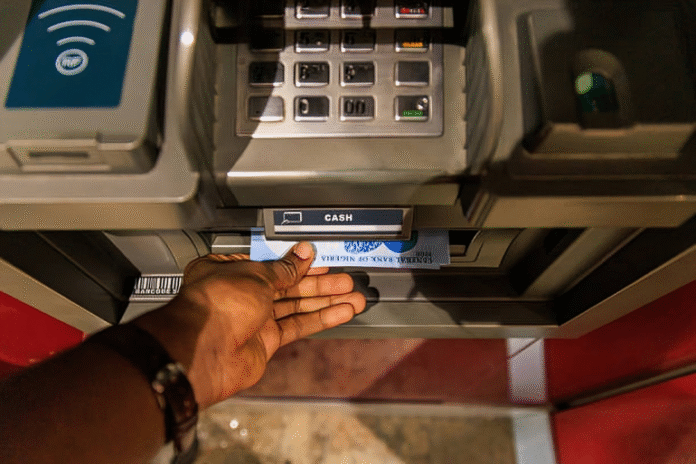The Central Bank of Nigeria has directed all commercial banks and financial institutions to reverse failed ATM transactions within a maximum of 48 hours, introducing strict timelines aimed at improving customer experience and accountability in the banking system.
The instruction forms part of a draft policy document released over the weekend, titled “Exposure of the Draft Guidelines on the Operations of Automated Teller Machines in Nigeria.” Musa I. Jimoh, Director of the Payments System Policy Department, signed the circular addressed to banks, payment providers, card networks, and independent ATM operators. Stakeholders have until October 31, 2025, to provide feedback on the proposed measures.
The draft guidelines establish different timelines depending on transaction type. When customers use their own bank’s ATM and experience a failure, the reversal must happen automatically. If technical challenges prevent immediate correction, banks have 24 hours to manually process the refund. Transactions conducted at another bank’s machine must be reversed within 48 hours.
The circular emphasized that customers should not bear the consequences of system errors or network failures. Financial institutions are now expected to install advanced systems capable of automatically reversing failed or incomplete transactions without requiring customers to lodge formal complaints. Banks holding funds from unsuccessful withdrawals must reconcile accounts and return the money without delay.
The regulator stated that the policy responds to ongoing complaints about delayed refunds, inadequate service delivery, and mounting customer dissatisfaction. The initiative also seeks to upgrade Nigeria’s payment infrastructure and bring local banking operations in line with international standards.
Beyond transaction reversals, the guidelines introduce sweeping changes to ATM deployment across the country. Banks and card issuers will be required to maintain at least one ATM for every 5,000 active cards. Compliance targets are staggered at 30 percent by 2026, 60 percent by 2027, and complete adherence by 2028. The central bank must approve any new ATM installation, relocation, or removal.
Security and accessibility features are central to the new requirements. All machines must be equipped with anti-skimming devices, CCTV cameras, and positioned in well-lit or secured locations. They must meet Payment Card Industry Data Security Standards, keep comprehensive audit trails, and prominently display working helpdesk contacts. At least two percent of ATMs must incorporate tactile elements to support visually impaired users.
Operational standards have also been outlined. ATMs must release cash before returning cards, offer free PIN modifications, and provide receipts for all transactions apart from balance checks. Transaction charges must be clearly displayed, and only clean currency notes should be dispensed. Backup power supplies are mandatory to ensure continuous operation.
The new regulations limit consecutive downtime to 72 hours. Beyond this threshold, operators must publicly explain the cause of the disruption and indicate when service will resume.
Enforcement will involve regular audits, on-site inspections, and monthly reports from ATM operators detailing their deployment figures and locations. Institutions that fail to comply will face sanctions, although the circular did not outline specific penalties.
The central bank explained that the overhaul was prompted by increasing reports of transaction failures, cyber threats, and declining service standards. The regulator expressed its commitment to creating a payment system that functions efficiently for all Nigerians, whether in urban centers or rural communities.
Industry players have been invited to submit their input before the final guidelines are published. Implementation is anticipated before the year ends.

